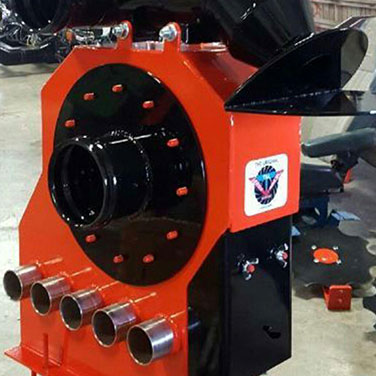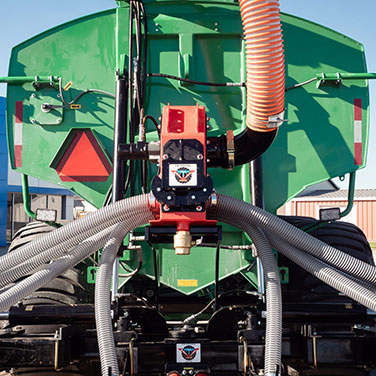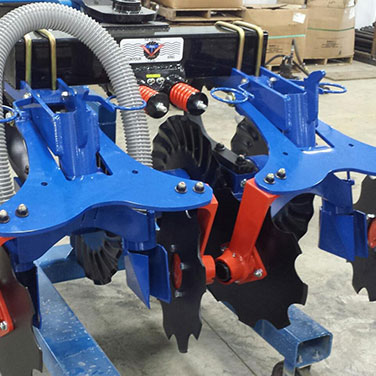Tips When Using Small Manure Spreaders for Your Garden
Small manure spreaders provide gardeners and farmers with a focused source of nutrients that can ensure the health of their crops for years to come. However, it is straightforward to make mistakes that can complicate this process and make it more difficult. For example, you may not handle your manure properly and cause it to lose many of its nutrients.
Make sure that you follow these simple steps to ensure that your fertilizer is as safe as possible for your garden or farm. They are appropriate to consider no matter what type of growing situation you have in mind for your life. For example, even farmers with large fields should consider these to ensure that they don’t spread weak or less potent manure on their grounds.
Avoid Using Very Fresh Manure
When using small manure spreaders on your garden, you need to make sure that you’ve let your fertilizer set for a while before you try to spread it on your garden. When your compost is too fresh, there is a good chance that it could cause damage to your crops. This problem is also an issue because the bacteria on your fertilizer could cause nasty illnesses if you don’t take precautions to ensure that your manure is as safe as possible for the needs of your farm and your soil.
For example, pathogens like E.coli and salmonella may end up on your plants and end up getting shipped to people buying your goods. This problem will come back to you haunt you if people end up getting sick from your crops. For example, you might end up getting sued by people who buy your plants or may end up losing business because you weren’t careful enough with how you manage your fertilizer.
Typically, the best way to avoid this problem is to let your fertilizer sit for a while before you spread it directly onto any plants. A compost pile is a good choice because your manure will break down the nitrogen and other items that can cause damage. You should then spread beneficial organic material in your fertilizer to destroy the bacteria that may cause damage to your crops. These materials should be easy to handle and liquid enough to move easily through your fertilizer without difficulty.
Just as importantly, you then need to apply your manure into your soil before you plant any crops. This step is smart because it keeps fertilizer off of your plants and puts it directly in the ground of your garden or farm. Don’t forget that your crops don’t benefit from the manure directly but only through the nutrients that it adds to the soil. So try to add it before or after planting seasons to get the best results for your crops and any other plants that you grow.
Check for Possible Contamination
Before using your small manure spreaders on your garden, you need to make sure that it doesn’t have any contaminating items. Simply put, your manure may end up with pesticides, antibiotics, or medication in it if you aren’t careful. How do these items end up on your fertilizer?
There are a few ways that this situation occurs, many of which you may trigger on your own if you don’t understand the various issues that cause contamination of your soil in the first place.
For example, you may try to kill flies on your manure by spreading pesticides on your pile. This step may also occur if you buy fertilizer from another farmer who suffered from this problem. These chemicals will linger in your manure and will kill important microbes that break down your compost and ensure that it is as potent as possible for your soil’s needs. And they can stick around for weeks and even months after application, causing serious complications.
Medication is a little more complicated but can become an issue if you don’t know where you get your manure. For example, you may get fertilizer from horses taking various types of medication for their health. Unfortunately, many types of drugs can outright destroy the positive bacteria and microbes in your manure and cause complications with its effectiveness. Sadly, this problem can also affect the quality of your crops and affect your profit line.
Age Your Manure
One of the most important things to consider when utilizing your manure is its age. Typically, you want to age manure – even liquid fertilizer – for a while to ensure that it is as high-quality as possible. For example, you need to compost your fertilizer for several months to reduce its water levels and to minimize the potent bacteria and nitrogen that may burn your plants if you aren’t careful.
The fertilizer should be stored in a covered container that still gets access to some elements. Oxygen and heat are all critical for this process and help to not only minimize smells but help beneficial bacteria properly prepare your manure before you use it on your farm or garden. Even better, this process will help to manage your manure and kill the harmful bacteria and pathogens that cause complications with your fertilizer when applying it.
Just as importantly, you need to make sure that you heat your manure for several hours at high temperatures to age it more quickly. Typically, this process requires putting it in a proper fertilizer heater and warming it up to 160 degrees Fahrenheit for several hours. You may even want to let it sit for half a day or more to entirely destroy the bacteria and pathogens that cause difficulties.
You can also do this process over a longer time by letting your fertilizer sit for at least six months in a compost pile. This action is smart if you utilize a lot of solid manure and want to get the best results. For liquid fertilizer, you can still let it compose and achieve positive results. However, you need to be careful that you don’t let too much of it sit for too long or you might end up losing some through evaporation. This process requires a careful balance that may be hard for some to do on their own, so don’t hesitate to get help.
Don’t Hesitate to Ask for Help
The management of your fertilizer will require a lot of individual attention and the skill to know when to ask for help. Too many gardeners or farmers assume that they can handle this situation on their own without any help. Unfortunately, this typically means that they’re going to end up making mistakes that complicate their farming and potentially decrease their effectiveness. As a result, you should talk to a professional to ensure that you get the best results.
So if you’re interested in using small manure spreaders anywhere in the United States and Canada and want to make sure that you get it right, please don’t hesitate to contact us at Vertical Till Injector (VTI) today to learn more. Our experts will set you up with the best possible equipment and ensure that you take proper care of your manure in a way that ensures your success. We’re ready to help you get the best results from your manure needs.



